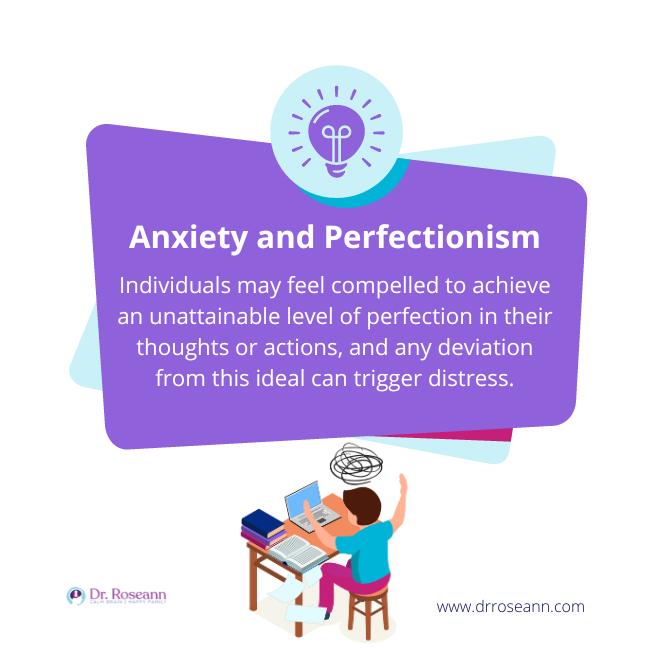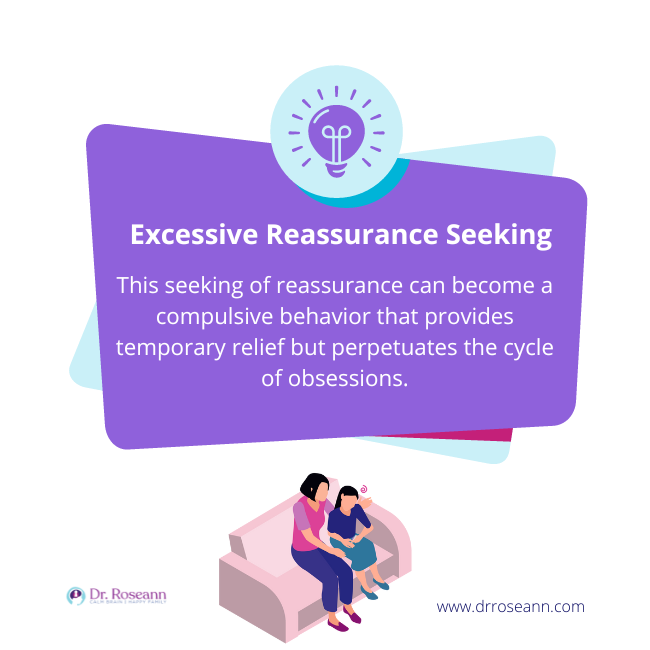Obsessive-Compulsive Disorder (OCD) manifests as constant dwelling on unwanted thoughts or scenarios. Simply defined, OCD is characterized by obsessions and compulsions. Individuals with OCD experience uncontrollable worry or excessive self-doubt, leading to a preoccupation with unwanted and distressing thoughts. These highlight the mental challenges faced by those dealing with this mental health condition. Here are 27 facts about OCD you should know if you want to help your child get through it.
1. Intrusive and Unwanted Thoughts
Intrusive thoughts, one of the most common signs of OCD, are unwanted and distressing mental images, ideas, or impulses that intrude upon the consciousness of OCD sufferers. These thoughts, often inconsistent with personal values, can cover diverse themes such as contamination, harm, or taboo actions.
Striking unpredictably and causing significant anxiety, intrusive thoughts can persist over time, impacting daily functioning and leading to cognitive distress. People with OCD may recognize the irrationality of these upsetting thoughts but find it challenging to alleviate the associated anxiety condition.
2. Mental Rumination
Mental rumination refers to the persistent and repetitive focus on thoughts, often negative or distressing, without resolving. It is a cognitive process characterized by the obsessive replaying of events, concerns, or problems in the mind.
Unlike problem-solving, which involves actively seeking solutions, rumination tends to be unproductive and can contribute to heightened stress and anxiety. This phenomenon is not exclusive to any particular mental health condition but is often associated with disorders like OCD, depression, and anxiety (Wahl et al., 2021).
Individuals engaging in mental rumination may find it challenging to break free from a cycle of overthinking, as the thoughts loop continuously, leading to emotional exhaustion and a sense of being trapped in one's mind. This pattern of rumination can hinder effective decision-making, disrupt daily functioning, and contribute to the maintenance of negative emotional states.
3. Doubt and Uncertainty
In the context of mental illness, doubt often manifests as persistent questioning or hesitation, accompanied by a heightened fear of making a wrong decision or facing undesirable consequences. Uncertainty, on the other hand, involves a lack of confidence or assurance about the outcomes of one's actions or the accuracy of one's perceptions.
The symptoms of OCD include a high level of doubt and uncertainty. Individuals may doubt their thoughts, beliefs, or actions, leading to a cycle of obsessive thinking and compulsive rituals aimed at resolving these doubts.
4. Fear of Making Mistakes
The fear of making mistakes is a common psychological phenomenon that can impact various aspects of your child’s or teen’s life. Its effects range from personal relationships to professional endeavors.
This fear is rooted in a deep-seated concern about the potential consequences of errors, often leading individuals to experience heightened anxiety, self-doubt, and perfectionistic tendencies. This fear can stem from a variety of sources, including societal expectations, personal standards, and past experiences of criticism or judgment.
People who fear making mistakes may go to great lengths to avoid situations where errors are possible, and they may invest excessive time and energy into double-checking or seeking reassurance to prevent perceived missteps.
5. Perfectionism

OCD is often associated with perfectionistic tendencies. Individuals may feel compelled to achieve an unattainable level of perfection in their thoughts or actions, and any deviation from this ideal can trigger distress.
Perfectionists may engage in meticulous planning, over preparing, and exhaustive self-monitoring in an attempt to avoid any errors or shortcomings. While pursuing excellence is a positive quality, perfectionism can become problematic when it leads to chronic stress, anxiety, procrastination, and a diminished sense of accomplishment.
6. Mental Checking
Mental checking is a cognitive process characterized by repetitive behaviors and intrusive review of thoughts, memories, or information in an attempt to alleviate anxiety or uncertainty. This behavior is commonly associated with OCD but can also be present in other anxiety-related conditions.
Unlike observable physical behaviors such as handwashing or counting, mental checking involves internal processes that are not visible to others. Individuals engaging in mental checking may repeatedly review past events, conversations, or decisions to ensure everything is in order or prevent a feared negative outcome.
This form of compulsive behavior often arises from an intense need for certainty and a fear of making mistakes or overlooking important details. Individuals with obsessive-compulsive checking tendencies exhibit low confidence in their ability to recall situations that typically trigger compulsive checking behaviors, especially those for which they bear responsibility (Cougle et al., 2007).
7. Avoidance of Triggers
Individuals with OCD may engage in avoidance behaviors to prevent exposure to situations or stimuli that trigger their obsessive thoughts. This avoidance can significantly impact daily functioning and quality of life.
Avoidance serves as a coping mechanism to reduce the immediate discomfort associated with confronting feared stimuli. However, it can have detrimental consequences in the long run, as it prevents children from learning that they can tolerate and cope with anxiety-provoking situations.
8. Emotional Distress
The obsessive thoughts and compulsive mental rituals associated with OCD can cause significant emotional distress, including anxiety, guilt, shame, and frustration. Emotional distress can manifest in various forms and it often goes beyond the typical fluctuations in mood.
It can also significantly disrupt a person's ability to function in their daily life. In cases of prolonged emotional distress, individuals may struggle with concentration, sleep disturbances, changes in appetite, and a diminished sense of overall well-being.
9. Avoidance Behaviors
People with OCD may avoid situations, places, or activities that trigger their occasional obsessive thoughts. Avoidance is a common behavioral strategy to reduce anxiety and prevent the distress associated with specific triggers.
While providing temporary relief, avoidance often reinforces the belief in the perceived threat, which perpetuates anxiety and hinders emotional processing. Breaking the cycle of avoidance enables individuals to tolerate discomfort, manage anxiety, and ultimately promote long-term psychological well-being.
10. Excessive Reassurance Seeking
Individuals may seek reassurance from others excessively, asking for confirmation or validation related to their obsessive thoughts. This seeking of reassurance can become a compulsive behavior that provides temporary relief but perpetuates the cycle of obsessions.

People who engage in excessive reassurance-seeking may struggle with persistent self-doubt, fear of negative outcomes, or anxiety about potential mistakes. Despite receiving reassurance, the relief is often short-lived. This leads to a cycle of seeking more reassurance to ease the anxiety temporarily.
Much like the act of double-checking, seeking reassurance is a way for individuals to briefly ease their worries and feel less accountable for their obsessive thoughts. The more intense these thoughts become, the harder it is to distinguish variations in people's responses to receiving reassurance (Champion & Grisham, 2021).
11. Compulsive Research
Some individuals with OCD engage in compulsive information-seeking behaviors. This can involve extensive online research or seeking information from various sources to alleviate doubts and uncertainties.
Engaging in repetitive and time-consuming information-seeking activities is generally driven by a belief that acquiring more knowledge will provide a sense of control or certainty and mitigate fears or concerns.
12. Repeatedly Asking for Opinions
Individuals may repeatedly ask for the opinions or judgments of others to gain reassurance or to confirm their thoughts. This behavior is driven by a need to reduce the distress associated with uncertainty.
It can also stem from various psychological factors, such as a deep-seated fear of making mistakes, a desire for external validation, or heightened anxiety about the consequences of one's choices.
13. Overanalyzing Past Events
People with OCD may spend a lot of time overanalyzing past events, conversations, or decisions. This behavioral pattern is an attempt to gain a sense of control over obsessive thoughts and prevent negative outcomes.
Overanalyzing past events can manifest in different ways, such as replaying conversations in one's mind, second-guessing decisions, or dwelling on perceived mistakes or shortcomings. This behavior is often driven by a desire to find a resolution to lingering uncertainties.
14. Self-Checking
While mental checking is one of the most common OCD symptoms, individuals with OCD may also engage in physical self-checking behaviors. This can involve repeatedly checking one's body, belongings, or environment to ensure everything is in order.
Teens and young adults who engage in self-checking often feel compelled to review and verify details repeatedly, which is driven by a need to ensure that everything is in order and to alleviate anxiety or uncertainty.
15. Procrastination
Due to the fear of making mistakes, individuals with OCD may procrastinate on decision-making or completing tasks. Procrastination becomes a way to avoid potential errors or negative outcomes.
One contributing factor to procrastination is the role of short-term mood regulation. Tasks that evoke negative emotions or discomfort may be delayed to avoid immediate distress, even if the delay exacerbates long-term stress.
16. Anxiety
Individuals with OCD often experience high levels of anxiety, particularly related to their obsessive thoughts. The fear of making mistakes or facing negative consequences can contribute to heightened anxiety levels.
In severe cases, anxiety can lead to panic attacks, which involve sudden and intense surges of fear accompanied by physical symptoms such as rapid heartbeat, shortness of breath, and chest pain.
17. Guilt
Persistent intrusive thoughts in OCD often involve themes that trigger feelings of guilt. Individuals may feel guilt over perceived mistakes, harm they believe they may have caused, or doubts about their morality.
It is crucial to differentiate between healthy guilt, which promotes ethical behavior and personal growth, and excessive or irrational guilt, which may require professional intervention. Balancing accountability with self-compassion is key to fostering a healthy relationship with guilt and promoting overall psychological resilience.
18. Shame
The intrusive thoughts and the compulsive behaviors associated with OCD can lead to feelings of shame. Individuals may feel embarrassed or humiliated by the content of their obsessive thoughts.
Shame is a powerful and complex emotion characterized by a deep sense of personal failure, inadequacy, or unworthiness. Unlike guilt, which is associated with specific behaviors and actions, shame encompasses a negative evaluation of the self as a whole.
19. Fear
There is a significant element of fear in OCD, particularly the fear of making the wrong decision, causing harm, or facing negative outcomes. This fear is often irrational and out of proportion to the actual situation.
The purpose of fear is to mobilize the body and mind to respond to potential harm. It prepares an individual to face or flee from the source of danger. While fear is essential for survival, it can also become maladaptive and contribute to anxiety disorders, phobias, and other mental health conditions.
20. Depression
The lifetime prevalence of OCD, along with the emotional toll of constant intrusive thoughts, can contribute to feelings of sadness and depression. The persistent doubts and uncertainties may lead to a sense of hopelessness.
Depression is a pervasive and complex mental health disorder characterized by persistent feelings of sadness, hopelessness, and a lack of interest or pleasure in activities. It goes beyond the typical fluctuations in mood that individuals experience and significantly impacts various aspects of daily life, including work, relationships, and overall well-being.
21. Overwhelmed
Feeling overwhelmed is a common and often intense emotional and psychological experience characterized by a sense of being unable to cope with the demands, pressures, or challenges in one's life.
Individuals with OCD may feel overwhelmed by the intensity and frequency of their obsessive thoughts. The constant mental reviewing and analyzing can be mentally exhausting and emotionally draining.
22. Frustration
Frustration is a complex emotional response that arises when individuals encounter obstacles, challenges, or unmet needs, preventing them from achieving their goals or desires. It can manifest as a blend of emotions, including anger, disappointment, and stress, and it often emerges when individuals perceive a gap between their expectations and reality.
The inability to escape from obsessive thoughts and the temporary relief provided by compulsive behaviors can lead to frustration. Individuals may become frustrated with themselves for not being able to control or stop their obsessive thought patterns.
23. Uncertainty
Uncertainty is a fundamental aspect of the human experience, and it includes the lack of predictability or assurance about future events, outcomes, or conditions. It is a pervasive and unavoidable feature of life that individuals encounter in their personal relationships, work, health, and decision-making.
The development of OCD incorporates feelings of doubt and uncertainty. This uncertainty about one's thoughts, decisions, or actions can contribute to a constant state of emotional unease. Such uncertainty can be particularly distressing and may lead to compulsive behaviors aimed at achieving certainty or preventing feared outcomes.
24. Anguish
Anguish is an intense and distressing emotional state characterized by deep suffering, torment, or acute mental pain. This powerful emotion arises from a combination of factors such as overwhelming grief, despair, or a sense of helplessness, and it can be triggered by significant life events, loss, childhood trauma, or the anticipation of impending adversity.
The significant distress caused by obsessive thoughts and the compulsion to engage in mental rituals can result in emotional anguish. Individuals may find it difficult to enjoy daily activities or maintain a positive outlook.
25. Emotional Exhaustion
Emotional exhaustion is a state of profound fatigue and depletion of emotional resources, often resulting from prolonged periods of stress, intense emotional demands, or ongoing challenges that tax an individual's mental and emotional resilience.
The persistent nature of Obsessive Compulsive Disorder can lead to emotional exhaustion. Individuals may feel drained and fatigued due to the ongoing battle with intrusive thoughts and the need to perform compulsive mental rituals.
OCD Treatment
OCD is a disorder marked by persistent, distressing thoughts (obsessions) and repetitive behaviors or mental acts (compulsions) aimed at reducing anxiety or preventing feared outcomes. There are also many myths surrounding it like it may strike an hour a day or that should be gone by age 19.
Parents shouldn't treat OCD just like any other mental disorder, as it has many intricacies. Its common compulsions include repetitive checking, cleaning, counting, ordering, hoarding, repeating, engaging in mental rituals, touching or tapping, seeking reassurance, and a need for symmetry and exactness.
Finding the proper treatment plan for your child is crucial as different medications like Selective Serotonin Reuptake Inhibitors might not be appropriate for younger age groups as they can negatively affect brain function. The BrainBehaviorResetTM Program is a science-backed natural OCD treatment that doesn't have any side effects and won't modify a child's brain structure.
Parent Action Steps
☐ Learn more about OCD by listening to my It’s Gonna Be OK! Podcast and the OCD series.
☐ Create a safe space for your child to share their thoughts and feelings about their common compulsions.
☐ Set boundaries and reduce accommodating their persistent thoughts and OCD obsessions.
☐ Provide stability by identifying risk factors and creating a predictable daily routine.
☐ Make sure that all family members recognize OCD recovery is a gradual process. Even the most effective treatment takes time.
☐ Work with trained mental health professionals and explore options like Cognitive Behavioral Therapy and Exposure Response Prevention
☐ Take the OCD Quiz to learn how to manage the symptoms of OCD.
☐ Use the Solutions Matcher to get appropriate treatment options for your child.
Citations
Champion, S. M., & Grisham, J. R. (2021). Excessive reassurance seeking versus compulsive checking in OCD: Comparing implicit motivators and mechanisms. Journal of Behavior Therapy and Experimental Psychiatry, 75, 101720. https://doi.org/10.1016/j.jbtep.2021.101720
Cougle, J. R., Salkovskis, P. M., & Wahl, K. (2007). Perception of memory ability and confidence in recollections in obsessive-compulsive checking. Journal of Anxiety Disorders, 21(1), 118–130. https://doi.org/10.1016/j.janxdis.2006.03.015
Wahl, K., van den Hout, M., Heinzel, C. V., Kollárik, M., Meyer, A., Benoy, C., Berberich, G., Domschke, K., Gloster, A., Gradwohl, G., Hofecker, M., Jähne, A., Koch, S., Külz, A. K., Moggi, F., Poppe, C., Riedel, A., Rufer, M., Stierle, C., & Voderholzer, U. (2021). Rumination about obsessive symptoms and mood maintains obsessive-compulsive symptoms and depressed mood: An experimental study. Journal of Abnormal Psychology, 130(5), 435–442. https://doi.org/10.1037/abn0000677
Dr. Roseann is a mental health expert who frequently is in the media:
- Insider: What is OCD?
- Single Care Controlling the uncontrollable: Living with OCD during a pandemic
- MomsCove How to Help a Child with Anxiety and OCD
- Holistic Counseling Podcast: Effective Treatments for OCD
- Epidemic Answers: Neurofeedback for ADHD, anxiety, OCD and mood
- BCIA: Calming the OCD Brain with Neurofeedback and ERP Therapy
- Hope for Anxiety and OCD: Sudden Onset OCD
- Integrative Practitioner: Integrative Approaches to Treating OCD
- HappiHuman: Is it an Eating Disorder or OCD
Dr. Roseann is a Children’s Mental Health Expert and Licensed Therapist who has been featured in/on hundreds of media outlets including The Mel Robbins Show, CBS, NBC, PIX11 NYC, Today, FORBES, CNN, The New York Times, The Washington Post, Business Insider, Women’s Day, Healthline, CNET, Parade Magazine and PARENTS. FORBES called her, “A thought leader in children’s mental health.”

She coined the terms, “Re-entry panic syndrome” and “eco-anxiety” and is a frequent contributor to media on mental health.
Dr. Roseann Capanna-Hodge has three decades of experience in working with children, teens and their families with attention-deficit hyperactivity disorder (ADHD), autism, concussion, dyslexia and learning disability, anxiety, Obsessive Compulsive Disorder (OCD), depression and mood disorder, Lyme Disease, and PANS/PANDAS using science-backed natural mental health solutions such as supplements, magnesium, nutrition, QEEG Brain maps, neurofeedback, PEMF, psychotherapy and other non-medication approaches.
She is the author of three bestselling books, It’s Gonna Be OK!: Proven Ways to Improve Your Child's Mental Health, The Teletherapy Toolkit, and Brain Under Attack. Dr. Roseann is known for offering a message of hope through science-endorsed methods that promote a calm brain.
Her trademarked BrainBehaviorResetⓇ Program and It’s Gonna be OK!Ⓡ Podcast has been a cornerstone for thousands of parents facing mental health, behavioral or neurodevelopmental challenges.
She is the founder and director of The Global Institute of Children’s Mental Health, Neurotastic™Brain Formulas and Dr. Roseann Capanna-Hodge, LLC. Dr. Roseann is a Board Certified Neurofeedback (BCN) Practitioner, a Board Member of the Northeast Region Biofeedback Society (NRBS), Certified Integrative Mental Health Professional (CIMHP) and an Amen Clinic Certified Brain Health Coach. She is also a member of The International Lyme Disease and Associated Disease Society (ILADS), The American Psychological Association (APA), Anxiety and Depression Association of America (ADAA) National Association of School Psychologists (NASP), International OCD Foundation (IOCDF).
© Roseann-Capanna-Hodge, LLC 2023










